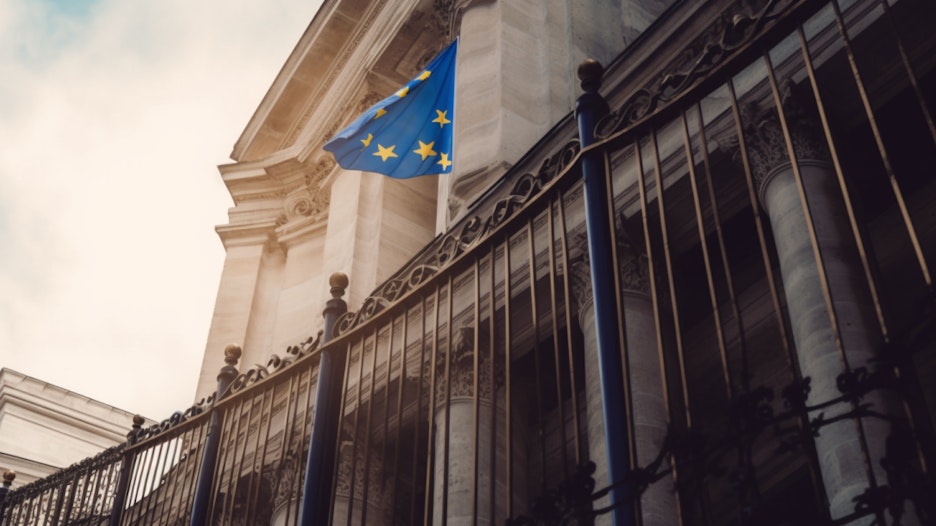News - How crypto can provide new European emancipation
By
How crypto can provide new European emancipation
Europe is losing technological and economic relevance. As obvious as this observation is, there are also glimmers of hope. Why precisely the crypto sector can lead to a new European emancipation.
Why could things be different this time, why could Europe hold its own in the blockchain sector against the U.S. and Asia? Experience speaks against it. After all, in all major technology areas, other regions are leading the way. In the platform economy, Europe has nothing to show for itself. Also, with the exception of SAP, none of the world's 100 largest technology companies are from Europe. Mainly because the big venture capital is not spent in this country, but west or east of us. This is also suggested by the valuations of the crypto companies. There are no valuations in the double digits of billions in this country, but there are in the US, with Coinbase or OpenSea for example.
If Europe cannot keep up in terms of money and innovation, how can we still become No. 1 in the crypto sector? The answer is: with regulation. As absurd as it sounds, one aspect that keeps us from competing with the U.S. and Asia in other areas could help us gain an advantage this time.
The U.S. and China are selling themselves short
The best innovation is of no use if the state and society are not yet ready for it. This is exactly what we have seen in China with the crypto sector, and the U.S. is making a fool of itself in front of the world public with its hard-line approach to crypto. The theater between individual U.S. authorities, such as the SEC vs. the CFTC, is exceeded only by the social divide between Democrats and Republicans. Crypto has now been added as a new line of conflict. The result: emotions outweigh factual arguments.
As a European looking across the Atlantic at cryptocurrency issues, you can almost be happy with Brussels bureaucracy. Despite its unwieldiness and tendency to over-regulate, the European Union has, with the Markets in Crypto Asset Regulation, short for MiCA, the most comprehensive legal framework created for global crypto-regulation. Of course, there are also countries such as Switzerland or Singapore that are also very progressive, but these are very small jurisdictions with only a small domestic market.
“If you’re a big crypto company, you will say you want high standards, you want regulation, you want a fair level playing ground,” CoinDesk regulatory reporter @jackschickler says as the EU's MiCA rules take effect.
— CoinDesk (@CoinDesk) June 2, 2023
Watch more, presented by @trondao: https://t.co/oLzOJKmhHK pic.twitter.com/NKXFcbzoQh
Crypto: the U.S. has the most to lose
The original crypto movement is decentralized and open source. It is precisely this innovation dynamic that conflicts with our current regulatory logic, which is centrally organized. In the case of garden furniture and bicycles, the regulatory aspect may be of limited importance. In the case of the highly regulated financial sector, it is different. Numerous institutions around the world, from central banks and supervisory agencies to the International Monetary Fund, have established a tightly regulated financial system.
The biggest beneficiary of the current structure is the US. They not only provide the reserve currency, but also exercise the greatest control over our financial system through companies like Mastercard or PayPal and international financial institutions like the World Bank and IMF. The crypto-economy threatens this supremacy. Indeed, decentralized logic allows the cards to be reshuffled in parts and power structures to shift again.
Theoretically, China would want to support the crypto-economy for this reason, but the Communist Party's autocratic addiction to control stands in the way. It is unwilling to give up its own domestic control in exchange for the loss of control by its opponents. China is in a quandary.
SEC claiming SOL, ADA, MATIC, FIL, ATOM, SAND etc are all securities. pic.twitter.com/OQJvfjbmRu
— Zaheer (@SplitCapital) June 5, 2023
Dialectic: regulation is innovation
Unlike the U.S. and China, Europe does not claim to be the No. 1 power in the world - despite realpolitik ambitions. In general, with its 27 member states, Europe is accustomed to a high degree of decentralization. The drive for decentralized consensus is in Europe's DNA, as is the primacy of redistribution. Against this backdrop, blockchain technology and thus MiCA regulation appears to be an attempt to emancipate the otherwise unwieldy alliance.
In contrast, the US and Asia, with China at the forefront, are currently failing to play to their strengths. This "window of opportunity" gives Europe, and especially the EU, the chance to become a leader in the crypto-economy. It is not who "innovates" first, but who "regulates" first that creates the opportunity for sustainable establishment of crypto on a broad scale and a subsequent commercial innovation dynamic.
Europe is already leading the way in terms of banks open to the crypto economy or willing to do business with crypto companies. What is needed now is a migratory movement from the other side of the Atlantic. The fact that stablecoin issuer Circle, among others, has chosen Paris as its new headquarters is a first sign in the right direction.
Innovation doesn't have to come from Europe
Especially since innovation need not arise exclusively locally. It is much more important to make globally generated innovation usable locally through regulation. After all, the further development of the sector does not happen in a specific region, but decentrally.
Just think of the Ethereum ecosystem and developers located around the world. So in a geographical context, innovation does not necessarily have to come from the EU. The EU must provide a legal framework for the sector's decentralized applications and economic activities. Whether the EU seizes this opportunity is another matter.






